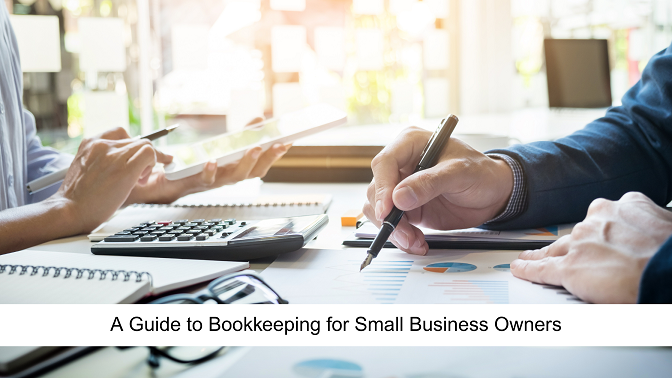
Are you a small business owner looking for a simple way to keep track of your money? Bookkeeping for small business owners is all about recording every sale, expense, bill, and payment so you always know where your money goes. Clear records make it easy to check your finances at any time and help your business stay on top of its accounts.
Every small business needs good bookkeeping to understand its money, pay the right taxes, and make better choices for growth. When books are neat, business owners can see what they owe, what customers still need to pay, and how much profit is made each month.
Bookkeeping is the process of recording all financial transactions in a business, such as sales, expenses, and payments. It helps keep track of money coming in and going out to maintain accurate financial records.
Bookkeeping for small business is very important. It helps people avoid mistakes, spot problems early, and make smart decisions. With up-to-date records, businesses can:
Small business bookkeeping also helps to follow the rules set by HMRC and avoid tax penalties.
A bookkeeper for small businesses looks after daily financial records. This means recording every sale, purchase, salary, and bill. Bookkeepers:
With good bookkeeping for small business, there are fewer errors, and it is easier at tax time. Many bookkeepers use clear, simple methods that small business owners can understand.
Good bookkeeping habits set a strong foundation for any small business. Following a few simple steps can help keep finances in order and reduce stress at tax time.
Keeping business and personal funds separate makes it easier to accurately track income and expenses. It makes record-keeping easier and prevents confusion when preparing accounts or VAT returns.
Collect and store all receipts, invoices, and bills related to your business. Using a digital system or folder keeps paperwork organised and ensures nothing gets lost, making it easier to back up your records for HMRC checks.
Bookkeeping software designed for small businesses can save time and reduce errors. Many options of user-friendly software help you record transactions and produce reports easily without needing expert knowledge.
Regularly reviewing your books keeps finances up to date and helps spot issues early. Frequent checks mean small problems don’t turn into costly errors or missed payments.
Always double-check your records and calculations to avoid mistakes that could lead to penalties. Accurate submissions ensure you meet tax rules and save time in case HMRC asks for clarification.
Small business accounting includes more than just bookkeeping for small business. Many accountants offer full support, including:
Having a trusted bookkeeper for small businesses or a small business accounting firm can help everyone stay organised and meet deadlines.
Good bookkeeping for small business is essential to keeping finances clear, paying the right taxes, and making smart decisions for growth. With organised records, small business owners can avoid mistakes, manage cash flow, and meet HMRC requirements easily.
Whether doing the bookkeeping yourself or hiring a professional, staying on top of your financial records helps your business run smoothly and succeed.
If managing bookkeeping feels challenging, professional support or outsourced bookkeeping services are just a call or email away. Get in touch with our expert team for help with bookkeeping, payroll, VAT, and self-assessment. Call us today on 0208 8611685 or email info@phs-uk.co.uk to keep your small business finances in excellent shape.